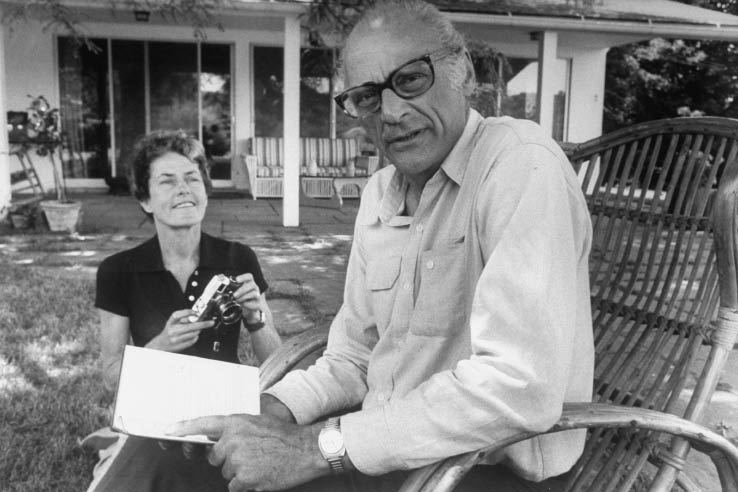For much of the second half of his life Arthur Miller was a man whose future lay behind him. The acclaimed American playwright, celebrated for classics such as The Crucible, All My Sons, A View from the Bridge and Death of a Salesman, struggled to get his later plays staged in his own country. When occasionally they were put on they were fiercely attacked by most critics, who thought them tedious, preachy and ill-written; as one typically said of Incident at Vichy, it was ‘the same old noisy virtue and moral flatulence’. Miller, they decided, was a relic of the postwar era, stuck in the ideological struggles of the past, and totally out of touch with the modern theatre.
Yet while he was marginalised on Broadway, where moral seriousness was almost a sin, in Europe his plays were widely staged and enthusiastically received. This was especially the case in the UK, where audiences were clearly more ready to accept the theatre as a place where social and political issues could be explored.







Comments
Join the debate for just $5 for 3 months
Be part of the conversation with other Spectator readers by getting your first three months for $5.
UNLOCK ACCESS Just $5 for 3 monthsAlready a subscriber? Log in